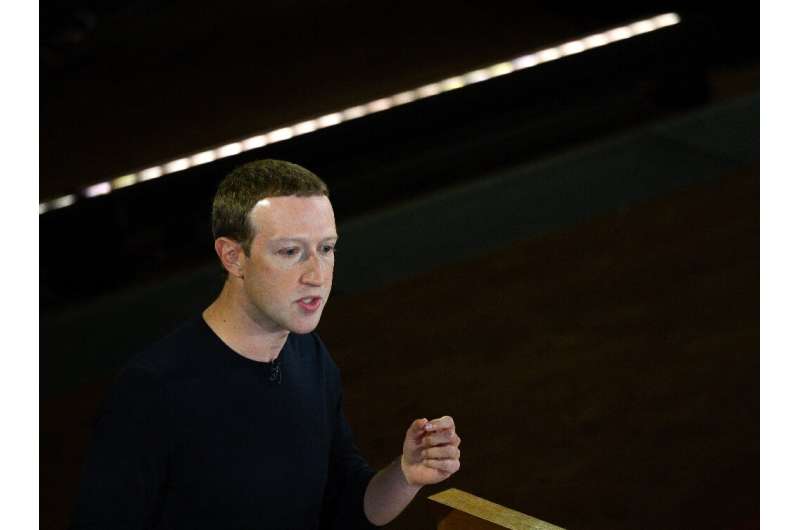Zuckerberg defends Facebook's hands-off policy for politicians

Facebook chief executive Mark Zuckerberg on Thursday defended the huge social network's policy of refraining from fact-checking politicians, saying it's not the job of tech firms to "censor."
Speaking to students at Georgetown University in Washington, Zuckerberg responded to critics who argued that Facebook is enabling political leaders including President Donald Trump to propagate misinformation.
Zuckerberg said the policy—which does not include the fact-checking of political speech or ads—is based on a long tradition of allowing free expression.
"I don't think most people want to live in a world where you can only post things that tech companies judge to be 100 percent true," he said.
"I don't think it's right for private companies to censor politicians or the news in a democracy."
Zuckerberg said Facebook still may remove content from political leaders or others when it may lead to "harm."
But he added: "When it's not absolutely clear what to do, I believe we should err on the side of greater expression."
The comments come with Facebook under heightened pressure to root out misinformation, and at the same time avoid charges from Trump and others of political bias.
Zuckerberg, whose speech was described as a "Conversation on Free Expression," said he still sees Facebook and other social platforms as a positive force because they give more people "a voice."
"The ability to speak freely has been central in the fight for democracy worldwide," he said.
Zuckerberg said he welcomes new regulations on tech platforms but warned against any effort that would strengthen the role in the online ecosystem of Chinese firms or others without the same values of free expression.
"Until recently the internet in almost every country outside of China has been defined by American platforms with strong free expression values," he said.
"But there's no guarantee these values will win out," he said.
He noted that Facebook-owned WhatsApp is used by activists and protesters, while Chinese-based app TikTok has been censoring information on protests.
"Is that the internet that we want?" he asked.
Zuckerberg said any regulation must take into account the value of open expression at a time when China is seeking to "export" its version of the internet.
"While we may disagree on exactly where to draw the line on specific issues, we at least can disagree," he said.
"If another nation's platforms set the rules, our discourse will be defined by a completely different set of values."
© 2019 AFP





















